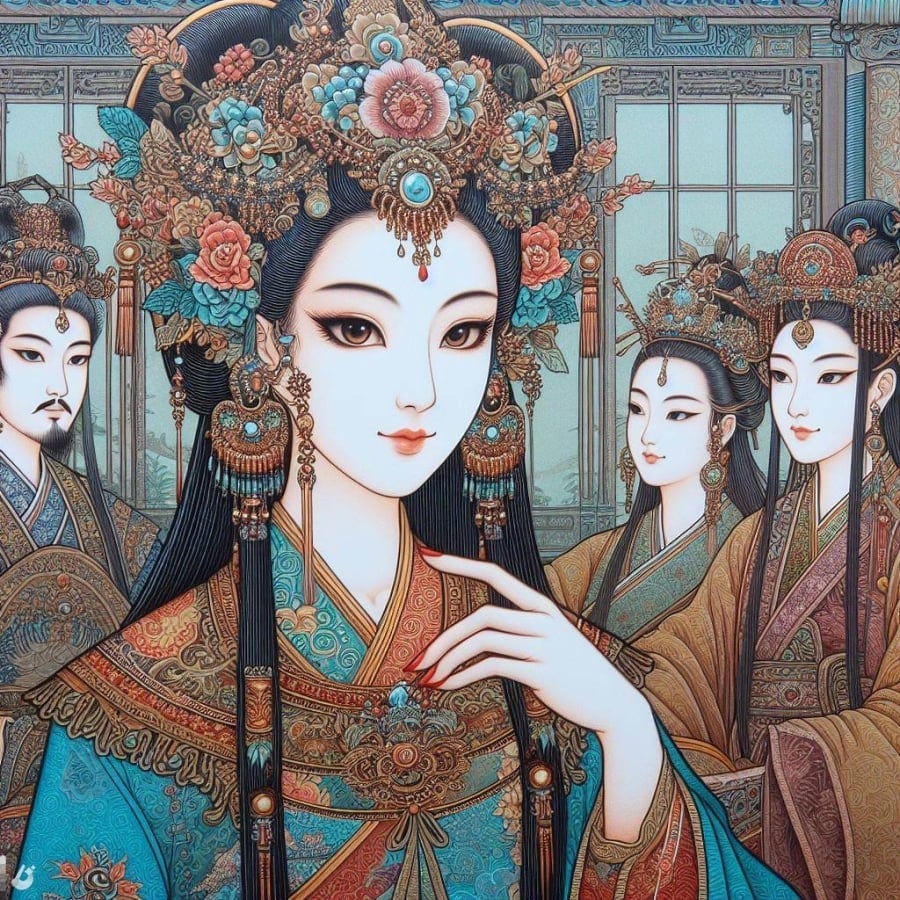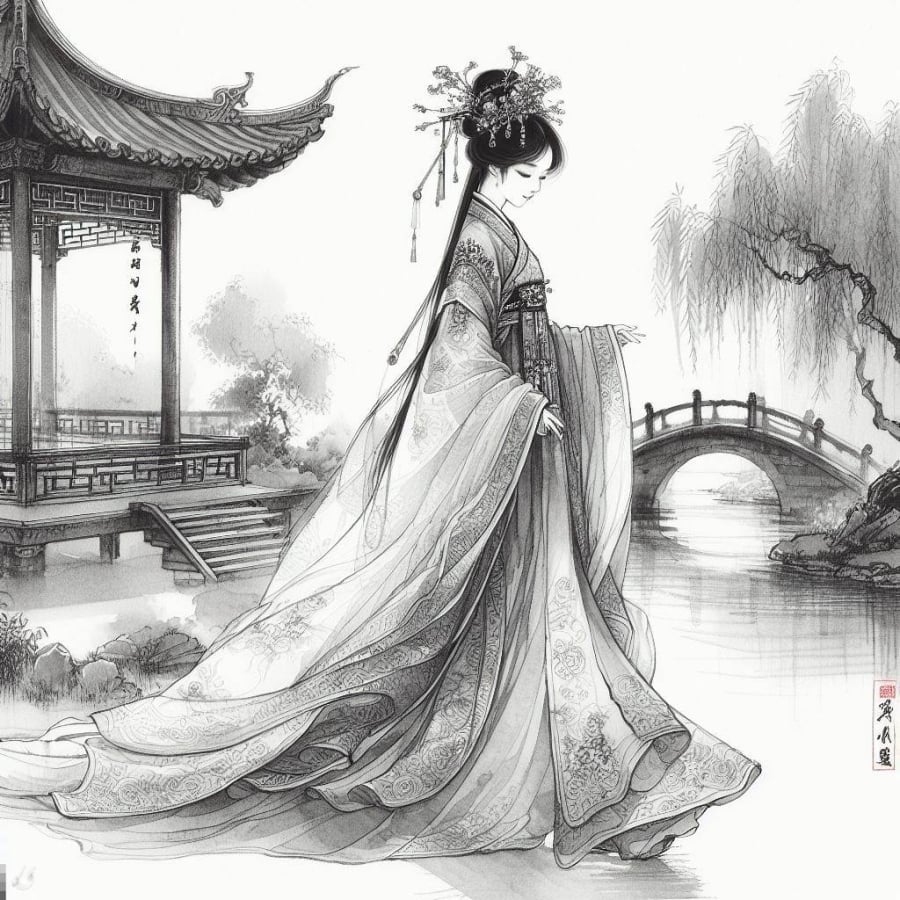## The Dark Reality of Palace Maids in Ancient Times: Navigating a Life of Hardship and Solitude
In ancient times, alongside the three palaces and six courtyards that housed the empress and concubines, there existed another class of women who led a life of immense hardship and darkness – the palace maids.
It was aptly described that “entering the palace is like sinking into the depths of the ocean,” as palace maids, from the moment they stepped into the harem, were destined for a cruel fate.
In the hierarchy of the imperial court, the empress stood at the top as the mother of the nation, with concubines in the middle, and the palace maids, though numerous, forming the solid foundation of the palace, unseen but essential.
The life of a palace maid was often marked by untreated illnesses, death without solace, and arduous labor. They endured a string of painful and difficult days.
Moreover, an aspect rarely spoken of was how they coped with their physiological needs, which took a heavy toll on their physical and mental health. Young palace maids, despite their vitality, faced prolonged loneliness in the darkness of night.
The first approach was “companion eating”
“Companion eating” took two main forms: one, relationships between palace maids themselves, and two, relationships between eunuchs and palace maids. In the harem, the emperor was the only man with supreme power, while others, including eunuchs, held little influence. Palace maids who were not favored and had no opportunity to interact with the emperor or other men in the harem often turned to same-sex relationships to compensate for their loneliness.
“Companion eating” here refers to dining together, secret crushes, or sharing private emotions to seek comfort and a sense of camaraderie. These relationships were usually short-lived.

“Companion eating” could take the form of relationships between palace maids or between eunuchs and palace maids.
The term “companion eating” described the relationships between palace maids or between palace maids and eunuchs in the ancient harem. In the palace environment, eunuchs had no families and palace maids had no husbands, so they often formed temporary bonds to alleviate their loneliness. If this relationship lasted and stabilized, it was called a “discharge household.”
However, due to the eunuchs’ celibacy, they couldn’t fulfill the physiological needs of the palace maids in the conventional way. Instead, they sought to stimulate their partner’s visual and tactile senses, creating a form of “companion eating” that was detrimental to the physical and mental well-being of the palace maids.
The second method employed by palace maids was adultery
Like anyone else, palace maids experienced emotions and had physiological needs. In the harem, their loneliness often intensified. Some palace maids, to break the monotony of interacting solely with eunuchs, sought comfort from palace guards to satisfy their physiological desires.
However, this act was strictly forbidden in the royal household, and if discovered, severe consequences would follow. Nonetheless, many palace maids accepted this risk to alleviate their loneliness.
The third option was to seduce the emperor
This was often the choice of ambitious palace maids. However, to succeed in seducing the emperor, they needed a combination of factors such as timely opportunity, favorable location, and personal charm. There were palace maids who never had the chance to interact with the emperor in their lifetime, so how could they realize this plan?
Those assigned to serve the concubines had a higher chance of catching the emperor’s eye. When the emperor favored a concubine, he might also notice a beautiful and suitable palace maid, considering promoting her to a more prominent position. Thus, attractive palace maids always tried to attract the emperor’s attention, even approaching him when he was inebriated or less lucid.

Seducing the emperor was a risky choice, often attempted by ambitious palace maids.
Lastly, the fourth method was to captivate the emperor
Many ancient emperors didn’t regularly attend to state affairs. In their leisure, they enjoyed entertainment, performances, or excursions. Palace maids seized these opportunities to showcase their allure, aiming to captivate the emperor. If successful, they became his special favorites.
In summary, palace maids in the imperial court yearned for male attention and favor. In this context, fulfilling their physiological needs became a top priority, despite the risks to their honor and the potential consequences. They traded their youth to attain this, a particularly harsh challenge for young women in the prime of their lives.
The Forbidden Desires of the Palace Maidens: A Tale of Unspoken Longing and Solace
Within the confines of the forbidden city, there existed a group of women whose youth was forever entrapped. These ladies, known as the ‘forbidden ones’, led a life of secrecy and solitude. Their days were spent in a world hidden from the prying eyes of the outside, a world where they were but shadows. But what of their desires? What of their wants and needs, trapped as they were, behind those palace walls? How did they find solace and satisfaction within themselves?
The Daytime Maid Works Tirelessly, But Why Does She Fear Her Master’s Slumber at Night?
In ancient times, women of the lower strata of society, especially palace maids, endured unimaginable hardships. Their lives were fraught with challenges and struggles that most of us today cannot even fathom. These women faced a constant battle for survival in a world that often treated them as mere pawns to be sacrificed at the altar of power and prestige.



































